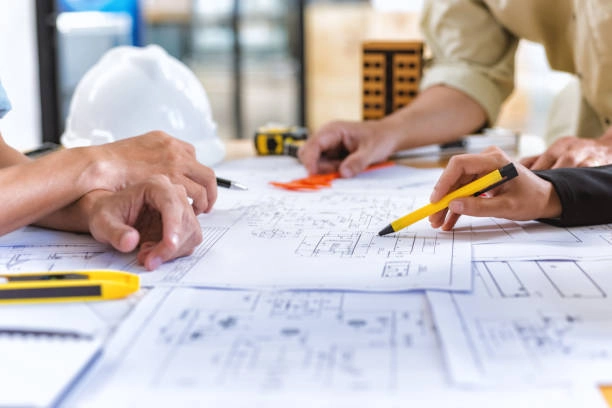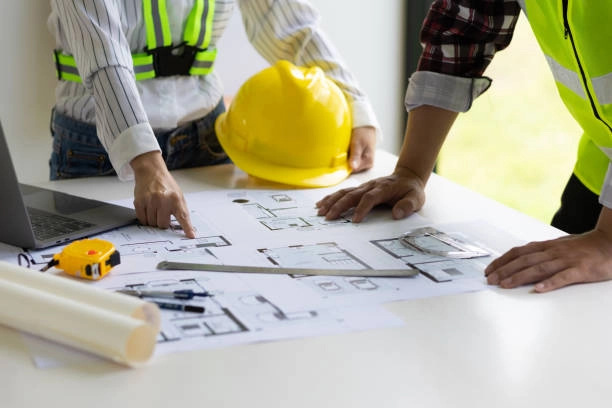Starting on a home improvement project can be exciting yet challenging. Whether you’re planning a renovation, adding an extension, or building a new structure, understanding the fundamentals of general construction is very important. This guide aims to provide you with the important information needed to navigate the construction process with confidence.
A well-informed approach can make all the difference in making sure your project runs smoothly. From selecting the right materials and hiring skilled contractors to understanding timelines and managing budgets, each step requires careful planning and consideration. This guide will break down the key elements of construction, offering practical advice and insights to help you make informed decisions every step of the way.
Whether you’re updating your kitchen, expanding your living space, or creating your dream home from the ground up, this guide will walk you through the entire process. We’ll cover important topics such as choosing the best design, securing necessary permits, and ensuring quality craftsmanship. By the end, you’ll have a solid understanding of what to expect and how to effectively manage your construction project.
Let’s dive into the world of construction together. With the right knowledge and preparation, you can transform your vision into a reality and create a space that you and your family will cherish for years to come.

Understanding General Construction
It encompasses a wide range of projects, including residential renovations, commercial builds, and new home constructions. The process involves various stages, from planning and design to execution and final inspection. Key players include architects, engineers, contractors, and various skilled tradespeople.
Planning and Design
The first step in any construction project is meticulous planning and design. This phase includes:
- Defining the Scope: Clearly outline what you want to achieve. Are you remodeling a kitchen, adding a room, or building a new home?
- Budgeting: Establish a realistic budget, considering all potential costs, including materials, labor, permits, and contingencies.
- Hiring Professionals: Engage architects and designers to create detailed plans and blueprints. Their expertise ensures that your vision is feasible and complies with local building codes.
- Permits and Approvals: Obtain necessary permits from local authorities. This step is crucial to avoid legal issues and ensure your project meets safety standards.
Choosing the Right Contractor
Selecting a reliable contractor is vital to the success of your general construction project. Here are some tips for making an informed choice:
- Research: Look for contractors with solid reputations and positive reviews. Ask for recommendations from friends, family, or online forums.
- Credentials: Verify that the contractor is licensed, insured, and bonded. This protects you in case of accidents or damages.
- Experience: Choose a contractor with experience in the type of project you’re undertaking. A contractor specializing in kitchen remodels might not be the best choice for a commercial build.
- Detailed Contract: Ensure the contract includes all project details, timelines, costs, and payment schedules. Clarity at this stage prevents misunderstandings later on.

The Construction Process
Once planning is complete and a contractor is selected, the actual general construction work begins. This phase can be broken down into several key stages:
Site Preparation
- Clearing and Excavation: The site is cleared of any existing structures or vegetation. Excavation is done to lay the foundation.
- Foundation: In general construction, the foundation is a critical component, providing structural support for the entire building. It must be carefully constructed to ensure stability.
Framing
Framing involves constructing the skeleton of the building. This includes:
- Walls and Roof: Wooden or steel frames are erected to create the walls and roof structure.
- Windows and Doors: Openings for windows and doors are framed at this stage.
Plumbing, Electrical, and HVAC
- Plumbing: Pipes for water supply and waste removal are installed.
- Electrical: Wiring for electrical outlets, lighting, and appliances is put in place.
- HVAC: Heating, ventilation, and air conditioning systems are installed to ensure a comfortable indoor environment.
Insulation and Drywall
- Insulation: Insulating materials are installed within walls and attics to regulate indoor temperatures.
- Drywall: Drywall panels are attached to the framed walls and ceilings, creating a smooth surface for painting or finishing.
Finishing Touches
- Flooring: Hardwood, tile, carpet, or other flooring materials are installed.
- Cabinetry and Fixtures: Kitchen cabinets, bathroom fixtures, and other built-in elements are added.
- Painting: Interior and exterior painting bring the project to life, adding color and character.
Final Inspection and Handover
Before you can enjoy your new space, a final inspection is conducted to ensure everything meets building codes and safety standards. This crucial step in general construction guarantees that every aspect of the project is up to par. Once approved, the project is handed over to you, ready for you to enjoy and make your own.
Tips for a Smooth Construction Experience
- Communication: Maintain open lines of communication with your contractor. Regular updates and meetings help address any concerns promptly.
- Flexibility: Be prepared for unexpected challenges. Flexibility in your schedule and budget can alleviate stress.
- Quality Materials: Invest in high-quality materials for durability and long-term savings.
- Safety First: Ensure the construction site is safe for workers and your family. Proper safety protocols should be in place at all times.

In conclusion, understanding the basics of general construction empowers you to make informed decisions and ensures a smoother project experience. From planning and design to execution and final inspection, every step is crucial. At Bayside Home Improvement, we provide high-quality construction services and transform your spaces with professionalism and care. Trust us to handle your next project and experience the difference our expertise makes.
Ready to start your construction project? Contact us today to begin your journey towards a beautifully crafted space that enhances your lifestyle.
Frequently Asked Questions
1. What should I consider before starting a general construction project?
Before starting, define your project scope clearly. Determine whether you’re renovating, adding space, or building anew. Establish a realistic budget and secure necessary permits to avoid delays.
2. How do I find a reliable contractor for my construction project?
Research contractors with solid reputations and positive reviews. Seek recommendations from friends, family, or online sources. Verify licenses, insurance, and bonding to protect your investment.
3. What are the key stages of the construction process?
Construction typically involves site preparation (clearing and excavation), foundation laying, framing (building the structure), installation of plumbing, electrical, and HVAC systems, insulation, and drywall, finishing touches (flooring, cabinetry, painting), and final inspection.
4. How can I ensure my construction project stays on schedule and within budget?
Clear communication with your contractor is crucial. Regular updates and meetings help address any issues promptly. prepare for unexpected challenges and maintain flexibility in your schedule and budget.
5. What should I expect during the final inspection of my construction project?
The final inspection ensures compliance with building codes and safety standards. It covers all aspects of the project, including structural integrity, electrical and plumbing systems, and overall safety.
6. How important is using quality materials in a construction project?
Investing in high-quality materials in general construction ensures durability and long-term savings. It enhances the overall look and functionality of your space while reducing maintenance costs over time.
7. What should I do if I encounter issues during my construction project?
Address concerns promptly by discussing them with your contractor. Document any changes or delays in writing and seek mutually agreeable solutions. Maintaining a collaborative approach helps resolve issues effectively.

